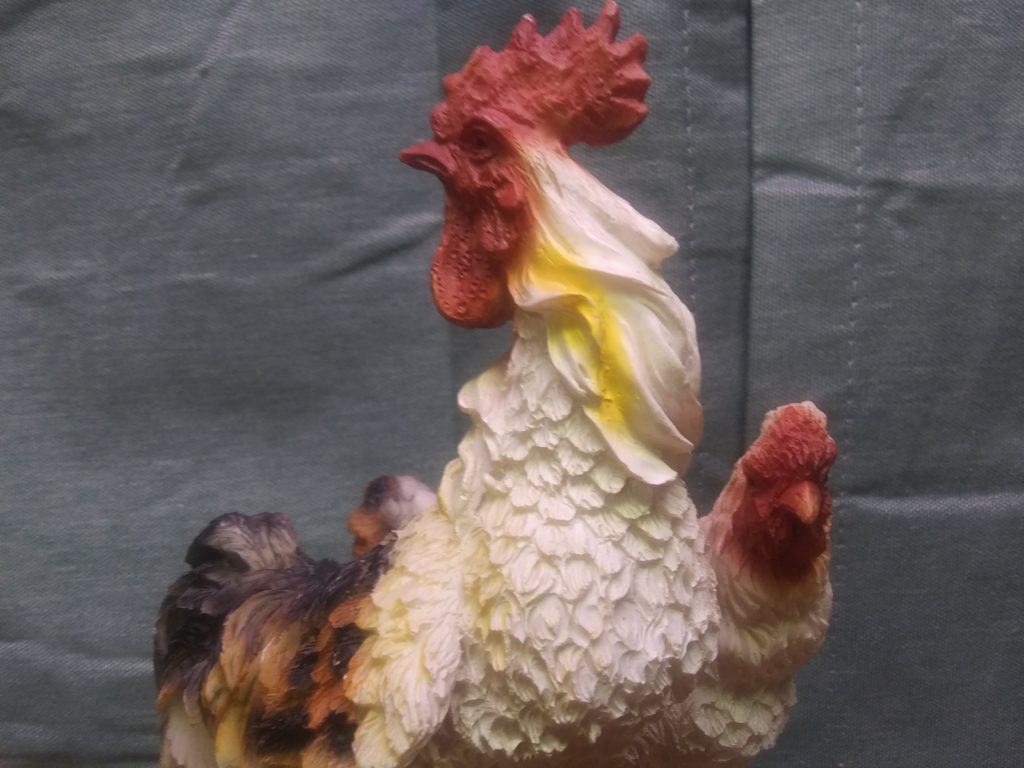Metaphors that can teach us something about advancement

Humans could learn a lesson or two from roosters.
There is an ancient legend of the Mesopotamian king Gilgamesh and his search for immortality. Gilgamesh was a man who feared dying and being forgotten. He then set out on a journey to find a magical flower that would grant him eternal youth.
After finding said flower, he set it upon the riverbank while he went to bathe in the river. While he was preoccupied, a snake slithered up and coiled around the flower making it vanish.
Gilgamesh emerged from the river to find that he had lost everything he had sought. He would eventually die and be forgotten having lost what would have made him eternal.
There are two morals to this story. The first is that it is better to have tried and failed than to not have tried at all. The second is a far more obvious lesson; if you have a magical flower that can make you immortal—use it first and then take a bath.
There are moments in our lives when we will have to stop and ask ourselves why we even continue on with our current schedules. I don’t have your problems, and you don’t have mine, but we will both face challenges. The best we can do is to face these challenges head-on, not only to triumph over these difficulties but also just to survive them.
We all fall and we all rise. College can be a tough time for many students. Every student encounters stress and burnout at least once, but this is countered by endless discovery both in the classroom and at home. For every negative, a positive crops up. Winter is coming to an end, and that at least is a plus-sized plus.
An example of this has to do with a rooster on my family’s farm who faced the pain and struggles life threw at him with relative ease. He was a red rooster with a very large single comb. A cold winter storm came through the farm. Though we boxed up all of our chickens in the coop and kept them warm, the fleshy points of the rooster’s comb became frostbitten.
Every time I would head out to feed the chickens I would see the crowned points of his comb turn blue, then black, until they eventually fell off. It looked terribly painful, but it did not seem to both him.
Concerned for this beautiful bird (I have a soft spot for roosters, for your information), I asked a family member what would become of the bird, fearing he could die. I was told that the frostbitten part of the comb would just fall off and not bother the rooster beyond that.
Exactly as I was told, the rooster’s comb remained on his head, but without the crownlike points. His comb had transformed into a smooth and slick top, from a single comb to a rose comb. Even though he never regained his points, he seemed unphased.
The rooster’s prime concern was eating, drinking, sleeping and crowing. He was so busy living his own life he did not seem to care about what he lost along the way. A little frostbite wasn’t going to stop him.
Like the rooster, don’t let your challenges and failure bring you down. Don’t be like Gilgamesh and let the loss of a simple flower become your legacy. Instead, use your experiences of failure to help you realize what to do better next time.
A timeless riddle states: “The eight of us go forth not back to protect our king from a foe’s attack.” This riddle refers to chess pawns. The pawn in the game of chess seems to be the smallest and most expendable pieces on the board. However, they are arguably the most important pieces due to their simplicity.
Only a pawn can sneak up on a king discretely due to its size, or resurrect a queen by sneaking to the other end of the board. It is their simple role in the game that allows them to be most likely to succeed. Like pawns, we must look at success in simple terms and go forward, not back. Go now and succeed.
